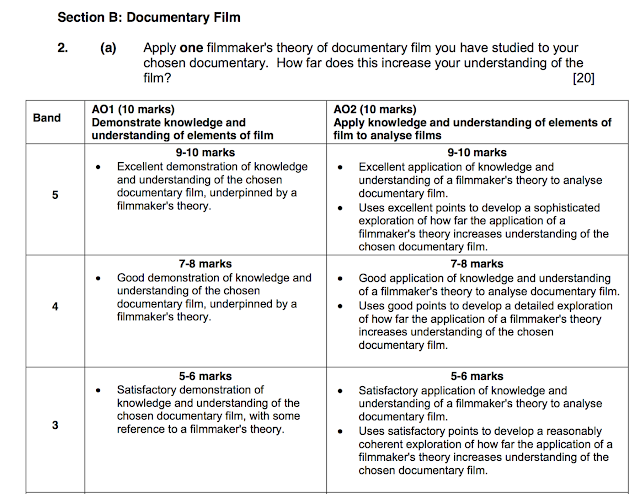CF & NCFOM -> Key Scenes & Exam Q's
Captain Fantastic - Key Scenes: Bo – oldest son Kielyr - daughter Vesp – daughter Rellian – son Nai – youngest? Zaja – youngest? Difficult to tell, even gender Hippy names – alienating? 00:00 – Opening sequence – Tracking (helicopter) across vast forest – isolation, wilderness, beauty, birdsong, wind Initially uninhabited – deer – like nature doc Violent death of deer – alignment with Bodevar? Children emerge, mud-caked – like aboriginal initiation rites Camouflage within nature – Ben enters, removes heart – Bo eats it, animalistic – Ben’s bloodied hands – enigma initially with his muddied face Deer on spit, hung from tree, gutted 05:30 Music in – celebratory w/ cross cutting of various preparations – idyllic, almost nostalgic way of life – primal 08:00 Training begins Alignment? Stabbing – Ben = ‘good’. 09:00 Evening Reading around fireside Ben observing his children – strict w education – goes against hippyish representation? Difficul
